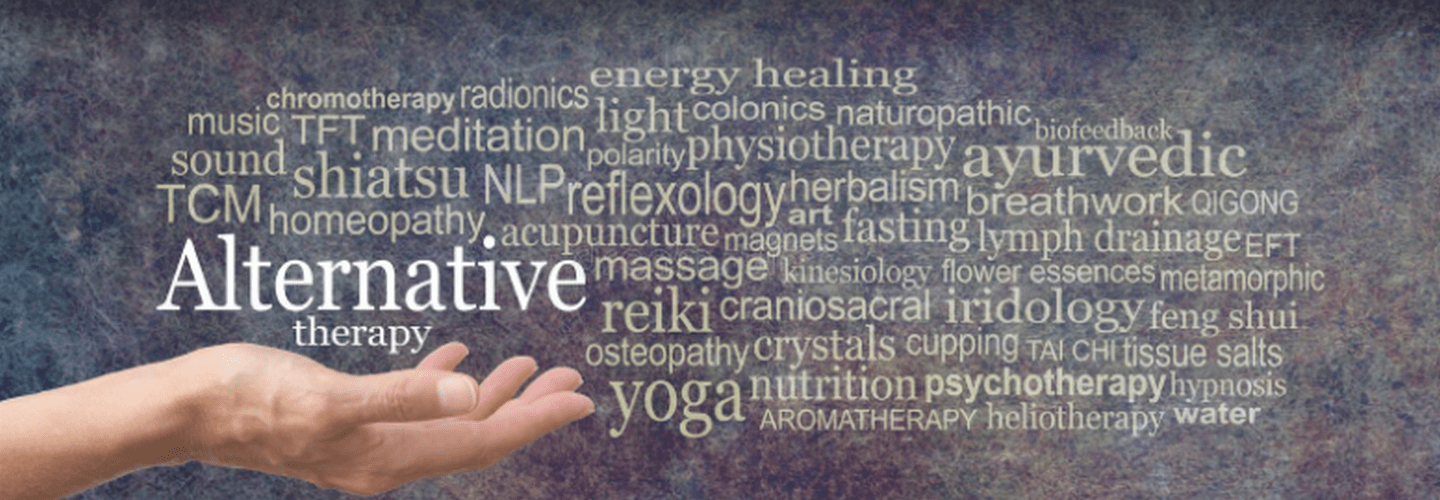
Tap into the power of hypnosis, EFT, and NLP to conquer your fear of needles. These modalities offer effective solutions by reframing thoughts and emotions, addressing deep-seated fears, and promoting relaxation. Through a harmonious blend of techniques, you can experience tailored treatment to overcome needle phobia. Discover how these potent therapies work together to help you liberate yourself from fear and anxiety surrounding needles. Activate the potential for transformation and find relief from your phobia with these innovative approaches.
Understanding Trypanophobia
Understanding Trypanophobia involves delving into the deep-seated fear and anxiety individuals experience specifically related to needles and injections. This fear can be triggered by various factors, such as a past traumatic experience during a medical procedure involving needles, fear of pain or discomfort, or even witnessing someone else's negative experience. Cognitive restructuring, a key aspect of addressing Trypanophobia, focuses on changing the individual's thought patterns and beliefs surrounding needles and injections. By challenging irrational thoughts and replacing them with more rational ones, individuals can gradually reframe their perception of needles from being a threat to understanding them as a necessary part of healthcare.
Moreover, understanding triggers that exacerbate the fear of needles is essential in overcoming Trypanophobia. By identifying specific situations, images, or thoughts that intensify the fear response, individuals can develop coping strategies to manage their anxiety effectively. Through cognitive restructuring techniques and targeted exposure therapy, individuals can gradually desensitize themselves to needles and injections, ultimately reducing their fear and anxiety.
Role of Hypnosis in Treatment

Hypnosis plays an essential role in the treatment of needle phobia by inducing a state of deep relaxation, allowing individuals to become more open to suggestion.
Through the power of hypnotic suggestion, patients can reframe their thoughts and emotions surrounding needles, effectively reducing fear and anxiety associated with injections.
Hypnosis for Relaxation
In the domain of therapeutic interventions, hypnosis emerges as a powerful tool for inducing deep relaxation and fostering a sense of calm. Through the utilization of stress management techniques, hypnosis can assist individuals in achieving a state of profound relaxation, helping them to alleviate tension and anxiety.
Hypnosis operates on the principle of the mind-body connection, acknowledging the intricate relationship between mental states and physical well-being. By tapping into the subconscious mind, hypnosis can guide individuals towards a state of heightened relaxation, enabling them to release stress and embrace tranquility.
This approach can be particularly beneficial for individuals seeking to manage stress levels and improve their overall sense of well-being through targeted relaxation techniques facilitated by hypnosis.
Hypnotic Suggestion Effectiveness
As individuals engage in hypnosis for relaxation, the effectiveness of hypnotic suggestions plays a pivotal role in guiding the treatment process towards desired therapeutic outcomes.
Utilizing hypnotic visualization techniques can help individuals create a mental image of overcoming their fear of needles, fostering a sense of calmness and control.
Additionally, incorporating EFT tapping during hypnosis sessions can further enhance relaxation and diminish anxiety associated with needles.
Anchoring techniques, where positive emotions or states are linked to specific cues, and NLP reframing, which helps restructure negative thought patterns, are valuable tools in reinforcing the effectiveness of hypnotic suggestions.
Overcoming Needle Phobia
When addressing needle phobia through treatment, individuals can harness the power of hypnosis to navigate and conquer their fears effectively.
Hypnosis plays an essential role in overcoming needle phobia by utilizing techniques such as exposure therapy and desensitization. Through guided hypnotherapy sessions, individuals can gradually confront their fear of needles in a controlled environment, helping them build tolerance and reduce anxiety levels.
Additionally, cognitive restructuring techniques employed during hypnosis can assist individuals in changing their negative thought patterns associated with needles. Relaxation techniques integrated into hypnotherapy sessions further aid in promoting a sense of calmness and control during needle-related situations.
Exploring Emotional Freedom Techniques (EFT)

Utilizing Emotional Freedom Techniques (EFT) can be a transformative tool in addressing and resolving deep-seated emotional issues. EFT operates on the principle that emotional distress is connected to imbalances in the body's energy system. By tapping on specific meridian points while focusing on the targeted issue, EFT aims to restore balance and alleviate emotional turmoil. One of the key benefits of EFT is its ability to quickly reduce feelings of anxiety, fear, and phobias, offering individuals a way to manage and overcome their emotional challenges effectively.
The EFT process involves identifying the specific fear or phobia related to needles and then ranking its intensity on a scale from 0 to 10. Through a series of tapping sequences on designated acupressure points, individuals can gradually decrease the emotional charge associated with the fear of needles. This process helps rewire the brain's response to the trigger, leading to a reduction in anxiety levels and a greater sense of emotional freedom. EFT can empower individuals to confront their fears, process underlying emotions, and ultimately experience a positive shift in their emotional well-being.
Benefits of Neuro-Linguistic Programming (NLP)

Neuro-Linguistic Programming (NLP) offers powerful techniques for overcoming fear and resolving phobias by addressing the root causes of these issues.
By utilizing NLP strategies, individuals can reframe their thoughts and behaviors, leading to lasting positive changes in their mental and emotional well-being.
The benefits of NLP extend beyond just managing fears, providing a holistic approach to personal growth and transformation.
NLP Techniques for Fear
Neuro-Linguistic Programming (NLP) offers powerful techniques to alleviate fear, providing individuals with practical tools to overcome their anxieties effectively.
NLP focuses on fear management and anxiety reduction by helping individuals reframe their thoughts and responses to fear triggers. Techniques such as visualization, anchoring positive emotions, and reframing negative beliefs can empower individuals to take control of their fear reactions.
Through NLP, individuals can learn how to rewire their thought patterns, replace fear with calmness, and build confidence in managing challenging situations. By practicing NLP techniques consistently, individuals can develop a sense of mastery over their fears, leading to increased resilience and a greater sense of well-being.
NLP and Phobia Resolution
Harnessing the power of Neuro-Linguistic Programming (NLP) techniques can provide individuals with a transformative approach to overcoming phobias and achieving lasting resolution. NLP focuses on the mind-body connection, recognizing that our thoughts, feelings, and behaviors are intricately linked.
By utilizing NLP strategies, individuals can explore their perception of fear, allowing for cognitive reprogramming that facilitates a shift towards a more positive and empowered mindset. Through techniques like visualization, reframing language patterns, and anchoring positive emotions, NLP enables individuals to address their phobias in a structured and supportive manner.
This approach not only tackles the surface-level symptoms but also investigates the root causes of the phobia, leading to profound and long-lasting transformation.
Combining Therapies for Synergy

Combining different therapeutic approaches can enhance treatment outcomes and provide a more inclusive solution for individuals struggling with needle phobia. By integrating techniques from hypnosis, Emotional Freedom Technique (EFT), and Neuro-Linguistic Programming (NLP), a therapeutic synergy is created, maximizing the effectiveness of each modality. This all-encompassing approach recognizes that each individual responds differently to various interventions, allowing for a personalized and all-encompassing treatment plan.
Hypnosis can help individuals access their subconscious mind to reframe negative beliefs and emotions associated with needles. EFT, with its focus on acupressure points and cognitive restructuring, can further alleviate anxiety and fear responses. NLP techniques offer tools for changing thought patterns and behaviors, reinforcing positive changes made through hypnosis and EFT.
When these modalities are combined, they work in harmony to address the multifaceted nature of needle phobia, offering a more robust and tailored approach. This integrated method acknowledges the complexity of phobias and provides a more thorough and effective path towards overcoming the fear of needles.
Addressing Root Causes With Hypnosis

In the therapeutic process of addressing root causes, hypnosis serves as a vital tool for delving into the subconscious mind to uncover and reframe underlying triggers contributing to needle phobia. The mind-body connection plays an essential role in understanding how past experiences or traumas can manifest as fear or phobia in the present. Through hypnosis, individuals can access their subconscious mind, where these root causes are often deeply ingrained, allowing for exploration, healing, and transformation.
Subconscious healing is at the core of hypnotherapy for needle phobia. By guiding individuals into a state of deep relaxation and heightened awareness, hypnosis enables them to confront and reevaluate the beliefs and emotions associated with needles. This process can lead to profound insights, allowing individuals to release fear and anxiety stored in their subconscious and replace them with positive associations and coping mechanisms.
EFT for Emotional Release

Emotional Freedom Techniques (EFT) offer a powerful method for releasing emotional blockages through tapping on energy meridians. By addressing these blockages, individuals can experience significant relief from emotional distress and anxiety related to needle phobia.
EFT provides a practical and effective tool for promoting emotional release and restoring a sense of calm and control.
Emotional Blockages Removal
For effective emotional blockages removal, practitioners often utilize Emotional Freedom Techniques (EFT) to facilitate emotional release and restore inner balance.
EFT is a powerful tool for promoting emotional healing and trauma release by tapping on meridian points while focusing on the specific issue, such as needle phobia.
Through this technique, individuals can address deep-rooted emotional blockages that may contribute to their fear of needles. By acknowledging and tapping on these emotional blockages, individuals can experience a shift in their emotional state, allowing them to let go of the fear and anxiety associated with needles.
This process of emotional release is essential for overcoming phobias and restoring a sense of calm and control in situations involving needles.
Energy Meridian Tapping
Utilizing Energy Meridian Tapping, also known as EFT, is a proven technique for facilitating emotional release and restoring inner balance in individuals experiencing needle phobia.
Energy Meridian Tapping involves gently tapping on specific meridian points on the body while focusing on the fear or phobia of needles.
This holistic healing approach aims to address the root cause of the phobia by rebalancing the body's energy system.
By tapping on these meridian points, individuals can release emotional blockages associated with their fear of needles, allowing for a sense of calm and relaxation to take over.
Energy Meridian Tapping is a safe and effective method that can complement traditional therapies to help individuals overcome their needle phobia and regain control over their emotions.
NLP Techniques for Behavioral Change

In the domain of behavioral change, Neuro-Linguistic Programming (NLP) offers a powerful set of techniques that can profoundly impact one's thought patterns and actions. NLP focuses on behavioral modification and subconscious reprogramming to bring about lasting change. By leveraging NLP techniques, individuals can identify and reframe limiting beliefs, cultivate new empowering beliefs, and adopt more effective behavioral patterns.
One key NLP technique for behavioral change is the 'Swish Pattern.' This technique helps individuals replace undesired behaviors with preferred ones by vividly imagining a trigger for the unwanted behavior and then swiftly replacing that image with one of the desired behavior. Through repeated practice, this technique can effectively rewire the subconscious mind, leading to automatic adoption of the desired behavior.
Another powerful NLP tool is the 'Anchoring Technique.' This method involves associating a specific trigger, such as a physical touch or a particular word, with a desired emotional state or behavior. By anchoring positive emotions to specific cues, individuals can learn to access desired states more easily, enabling them to navigate challenging situations with greater ease and confidence.
Overcoming Fear of Needles With Hypnosis

Needle phobia can be effectively overcome through the application of hypnosis techniques that target the subconscious mind's response to needles and injections. Hypnosis benefits individuals by helping them reframe their thoughts and emotions towards needles, creating a positive association rather than fear.
Here are three essential needle phobia solutions using hypnosis:
- Systematic Desensitization: Hypnosis can guide individuals through a process of gradually exposing them to the fear-inducing object or situation, in this case, needles. By repeatedly experiencing this in a relaxed state, the subconscious mind can learn to associate needles with calmness rather than anxiety.
- Visual Imagery: Through hypnosis, individuals can visualize themselves in a situation involving needles but with a positive outcome. This helps reprogram the subconscious mind to respond differently when faced with needles in real life.
- Cognitive Restructuring: Hypnosis can assist in identifying and altering negative thought patterns related to needles. By replacing these thoughts with positive affirmations during a hypnotic state, individuals can change their beliefs and reactions towards needles.
Personalized Treatment Plans

Tailoring individualized treatment plans is vital in effectively addressing needle phobia through hypnosis techniques like systematic desensitization, visual imagery, and cognitive restructuring. Each individual experiences fear differently, requiring a customized approach to therapy. By providing tailored solutions, therapists can address the specific triggers and anxieties unique to each person's needle phobia.
Individualized care is essential in helping individuals overcome their fear of needles. Specialized techniques, such as gradual exposure to needles through systematic desensitization, can help desensitize the individual to their fear. Visual imagery techniques can assist individuals in creating a mental space where they feel calm and in control during needle-related situations. Cognitive restructuring helps individuals challenge and change their negative beliefs and thoughts surrounding needles, fostering a more positive outlook.
Frequently Asked Questions
Can Hypnosis, Eft, and NLP Be Used to Treat Other Phobias or Fears Besides the Fear of Needles?
Anxiety management and trauma healing are fundamental aspects of addressing various phobias and fears. Incorporating techniques such as hypnosis, EFT, and NLP can provide effective tools for individuals to overcome a wide range of fears beyond just the fear of needles.
How Long Does It Typically Take to See Results When Using Hypnosis, Eft, and NLP for Needle Phobia?
Success timelines in resolving needle phobia using alternative therapies vary due to individual differences. Progress tracking is essential to gauge efficacy. Results may manifest gradually, typically ranging from a few sessions to a few months for noticeable improvements in fear reduction.
Are There Any Potential Side Effects or Risks Associated With Using Hypnosis, Eft, and NLP for Overcoming the Fear of Needles?
When exploring methods to overcome fear of needles, it's essential to contemplate potential risks and side effects associated with each approach. Understanding these factors allows for informed decision-making and guarantees a safe and effective resolution to the phobia.
Can These Techniques Be Effective for Individuals Who Have Had a Long-Standing Fear of Needles?
Virtual reality therapy, medication, exposure therapy, and cognitive behavioral therapy are effective interventions for individuals with long-standing needle phobias. These techniques offer structured approaches to gradually desensitize individuals, helping them overcome their fear.
Are There Any Specific Qualifications or Certifications to Look for in a Practitioner Who Offers Hypnosis, Eft, and NLP for Treating Needle Phobia?
When seeking assistance for overcoming needle phobia, it is important to prioritize safety and efficacy. Look for practitioners with relevant certifications and qualifications in hypnotherapy, EFT, or NLP. Make sure they meet the necessary requirements to provide effective treatment.
Conclusion
To sum up, hypnosis, EFT, and NLP can effectively address the fear of needles, also known as Trypanophobia. These therapeutic techniques offer personalized treatment plans that combine emotional release, behavioral change, and subconscious reprogramming.
For example, a patient who underwent a series of hypnosis sessions experienced a significant reduction in their needle phobia, allowing them to receive necessary medical treatments without distress.
These evidence-based approaches provide hope for individuals struggling with this common fear.
Take the Next Step
Do not be afraid to reach out to me, Mark E Wilkins, to assist you in any issues you might have. Most Hypnotherapy sessions last 2 hours and EFT Sessions are usually handled with one session. Life Coaching is 45 minute session, once a week. Self-Hypnosis is taught in one session, and lasts a lifetime.
To make an appointment, first listen to the Pre-talk and fill out he Complementary Healthcare Provider Disclosure. The use the Contact Form to request an appointment with the Bohol Hypnosis Expert.
Self-help downloads are available. The self-hypnosis program to teach you how to self-hypnotize is here.





